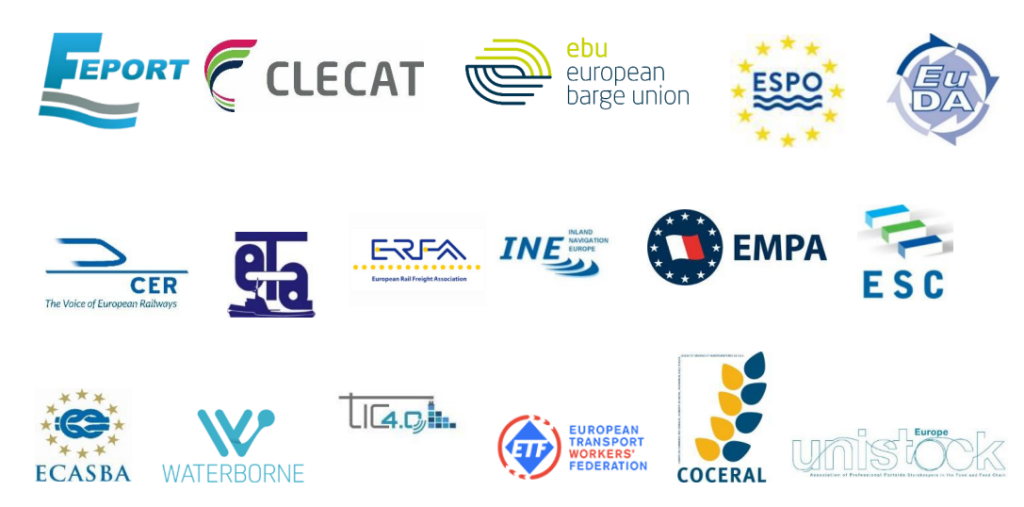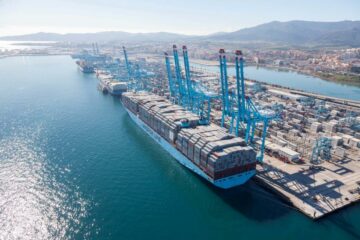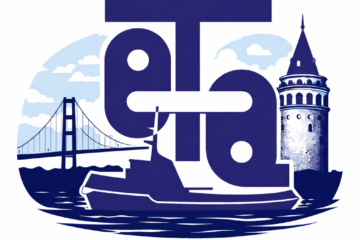17 Associations representing the waterborne logistics supply chain signed a joint position paper calling for a EU broader industrial, transport and sustainability agenda that ensures an innovative, resilient and competitive waterborne ecosystem.
This political agenda should prioritise 8 pillars:
1. Ecosystem Approach
Upcoming policy strategies like the EU Port Strategy and the EU Maritime Strategy should enable a stronger harnessing of synergies between the different economic actors of the logistics chain.
2. Resilience and Preparedness for potential disruption
New transport policies need to put the focus on a strengthened governance, more investment in digital and cyber resilience tools and closer collaboration between the different links of the logistics chain. Reliability can be improved by upgrading infrastructure to withstand environmental and operational pressures and securing essential resources.
3. Multimodal Connectivity and Infrastructure
Strengthening multimodal connectivity in the waterborne sector requires targeted investment in the trans-European transport network (TEN-T). To enhance connectivity, infrastructure development must be paired with digital integration, regulatory streamlining, and improved coordination between waterborne and land transport networks.
4. Ensuring a Competitive, Predictable, and Fair Economic Environment
A stable and predictable regulatory and investment framework is critical to the long-term
competitiveness of the European waterborne sector. To sustain its position in global markets, the EU must ensure a level playing field.
5. Innovation as a Driver of Competitiveness, Sustainability and Resilience
Investing across the value chain in research, development, innovation, and deployment of new technologies, alternative fuels, and advanced port, waterway, rail, and road infrastructure is fundamental to the European waterborne sector’s evolution.
6. Adequate and Accessible Funding
Public funding must remain a cornerstone of transport investment, with a strong, centrally coordinated European transport funding instrument. The Connecting Europe Facility (CEF) and other EU mechanisms should be reinforced to ensure long-term financial stability.
7. Supporting Industry leaders and SMEs
A comprehensive European competition policy should guarantee equitable market entry, actively prevent excessive market concentration and the abuse of dominant position by large enterprises, thereby safeguarding opportunities for SMEs to compete effectively.
8. Protecting and promoting quality jobs within the waterborne sector
It is essential that upcoming European strategies include a strong social and labour dimension, developed in cooperation with social partners. Measures must promote high-quality employment, strengthen social dialogue, and enhance training and upskilling opportunities for workers.
You can find the full joint stamente here.



